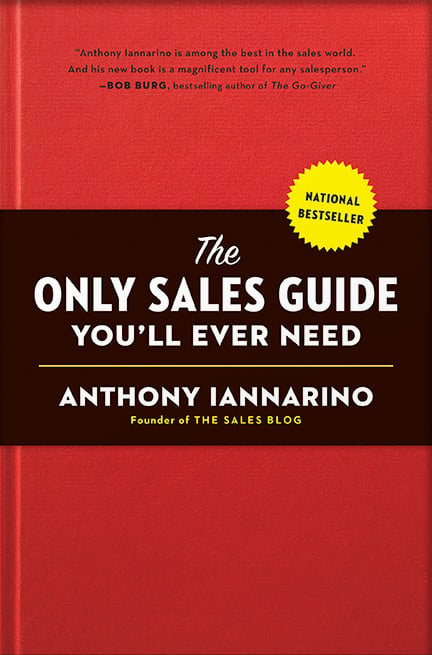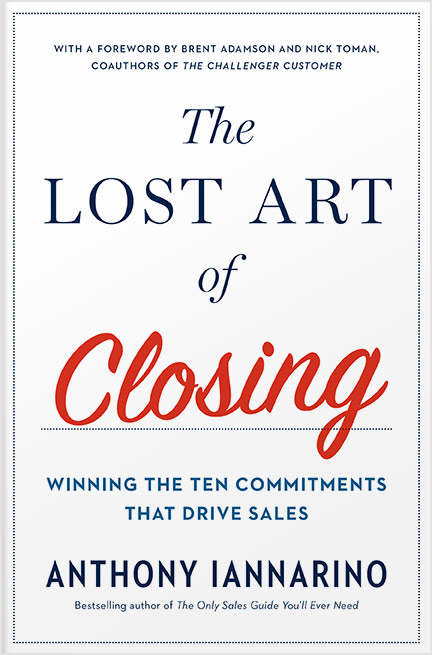The Gist:
- We spend a lot of time pursuing what we need from the sales cycle, sometimes to the detriment of our clients.
- One way to think about the sales conversation is to consider it as a facilitation designed to provide the client what they need to move forward.
- Viewing the sales conversation as a way to help the buyer with the information and insights they need to make good decisions, makes it easier for them to choose you as a partner.
In order to first create a needs-based buyer’s journey, you have to enable buyers by providing them the resources they need to make the right decision for their business and their future results.
A dialogue is a form of collaboration where ideas and information are exchanged. A buyer will have some idea of what they need, including what conversations and decisions are necessary to move their initiative forward. Meanwhile, the consultative salesperson adds their own experience to the conversation, recommending additional conversations and decisions, with suggestions for the order in which these conversations are pursued.

What Buyers Don’t Know: None of us know what we don’t know, including the decision-makers who are trying to move their company forward–often those who waited too long to make a change. Ignorance is not bliss; it’s a state in which it is difficult to make good decisions due to a lack of knowledge. Your buyers know their business: the results they need and sometimes the nature of their problem. Because they infrequently buy what you sell, they often need your help to understand what they don’t know.
What Buyers Need Before They Recognize a Need: One of the best ways you can help your clients and your prospective clients is by helping them recognize and pursue change before they are forced by negative consequences. If they don’t change course, your buyers may be careening towards the edge of the cliff without knowing what lies ahead,. Your buyers require advice to help identify their need to change to avoid a future problem.
What Buyers Need When They Are Compelled to Change: When you show up late for your clients and prospects, you may find that they are already experiencing the residuals from their inactivity. They either didn’t change soon enough or something changed so fast that they didn’t have time to respond effectively. You need to facilitate a conversation that provides your buyers with a deeper understanding of the nature of their challenge and offer them a chance to explore change.
What Buyers Need When Exploring Change: Your client generally benefits from help exploring what choices they might make to improve their results: the factors they need to consider, what they will need improve their results, and how best to achieve their objectives. Facilitating this conversation means being truly consultative, providing your advice on what they need to consider and why it is going to important to their future success.

What Buyers Need from Your Discovery: While it is important to understand your client’s needs during discovery, your buyers must also discover something about their business and how best to build better results. Your business acumen, experience, and insights are how you help your clients work towards a solution. And your clients will also need your help facilitating the design of that solution, ensuring they can execute it and produce the results they need.
What Buyers Need to Execute an Effective Process: One of our primary theses here is that none of us know what we don’t know. This often true when it comes to the conversations and commitments your contacts need to have to make a good decision. You can find a structure for this conversation in The Lost Art of Closing: Winning the 10 Commitments That Drive Sales. Some of the most important insights you possess are “buying insights,” the conversations that tend to be necessary for your client to effectively make decisions.
How to Help Buyers in the Presentation and Proposal: Your buyers need to see a solution they agree will work for them. But even more importantly, they need the certainty that they will succeed, and that you are prepared to ensure that they do not fail. You provide assistance when you remind them of their current state, show their future state, help them understand what challenges they should expect, and how you are going to help them overcome any obstacles.
What Buyers Need from Your Investment Proposal and Pricing: Until you help your buyers recognize the investment necessary towards improving their results, your buyers will only see your price. Your buyers should be able to understand why the investment is necessary to their results, along with the negative consequences for under-investing in their solution–accepting the concessions that come with an investment that is inadequate for the results they require.

Testing Your Facilitation
How Much Value You Create for Your Contacts: Instead of thinking about how you win a deal, instead think about how you can create the most value for your contacts in every interaction. The more helpful you are, the better your client’s results, and the more certain you will be their first and only choice.
How Much Work Can You Eliminate for Your Contacts: The more you remove the work your buyers need to do, the more valuable they find you and your guidance. By providing insights and situational knowledge, your buyers have to do less work to understand how best to make the decisions that allow them to achieve their objectives.
How Much Certainty Do You Create: The reason buyers struggle to buy and decision-makers struggle to decide is caused by uncertainty. No person responsible for making decisions– including buying decisions–wants to make a poor decision, especially a decision visible to all.
Do Good Work:
- Do you recognize what your clients need from you at every stage of the sales conversation?
- What would you need to change in order to move your approach from pursuing what you want, to pursuing what your clients need, generating the best outcome for both of you?
- How do you need to improve your skills as a facilitator of your client’s needs around buying?











.jpg?width=768&height=994&name=salescall-planner-ebook-v3-1-cover%20(1).jpg)


